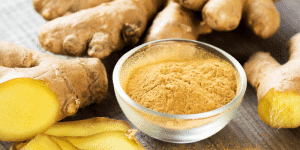If you’ve been diagnosed with polycystic ovarian syndrome (PCOS), there are most likely a number of approaches to easing symptoms and improving fertility that you’ve been introduced to.
While there is no one-size fits all approach for PCOS symptom relief, a new approach to food consumption can make major impacts in many cases. More and more research points to diet choices, in particular an anti-inflammatory diet, as a possible way to help shed stubborn weight, manage symptoms PCOS, and lower additional risk factors. may be beneficial for a number of reasons.
The Basics of Anti-Inflammatory Diet
To begin, an anti-inflammatory diet focuses on foods that, like the name suggests, help reduce inflammation in the body. As a normal response by the body’s immune system to protect against infection or injury, inflammation, when not managed, can amplify PCOS discomfort and lead to chronic diseases such as heart disease, arthritis, and diabetes.
While specialists may recommend a number of dietary approaches to resolving PCOS issues, they tend to all have one thing in common: an emphasis on plant-based foods. This is because plants contain natural antioxidants and other phytochemicals that help reduce inflammation and play an important role in improving female fertility.
In addition to an emphasis on plant-based foods, avoiding or limiting the intake of foods that can lead to an increase in inflammation should be considered. Unfortunately, these inflammatory foods are often ones that are abundant throughout the typical American diet.
The reason these foods can increase inflammation is due to the body’s cells absorption and reaction to processed foods versus natural foods. With natural food options, the body is programmed to metabolize and use the nutrients that comprise most vegetables, fruits and whole grains, whereas refined sugars, grains and fats are not needed by the body. Thus, the body reacts to these items in counterproductive ways; storing excess fat, spiking blood sugar levels, and increasing inflammation.

- Fruits and vegetables, especially those with bright colors such as berries, tomatoes, and leafy greens
- Whole grains
- Nuts and seeds
- Fish, especially those high in omega-3 fatty acids such as salmon, tuna, and mackerel
- Olive oil
- Tea, especially green and white tea
- Spices such as ginger, garlic, turmeric, and cayenne pepper
Foods that are suggested to be avoided, or consumed in limited quantities include:
- Processed foods such as chips, cookies, pastries and snack food
- Artificial sugars, sweetened drinks and soda
- Red meat and processed meats such as hot dogs and bacon
- Dairy
- Trans fats and fried foods
- Alcohol
How an Anti-Inflammatory Diet May Help with PCOS
While it’s obvious that an anti-inflammatory diet can help reduce inflammation in the body, it may be of more interest to understand what a reduction in inflammation means for PCOS symptoms and overall health. Thus, here are several ways in which this type of dietary approach may benefit women with PCOS.
Insulin resistance is a key factor in the development of PCOS. When insulin resistance is present, the body does not use insulin effectively. This can lead to high insulin in the blood, which can trigger the ovaries to produce too much testosterone. A diet with too much sugar and refined carbs can contribute to insulin resistance. On the contrary, a diet high in fiber and low in sugar can help improve insulin sensitivity.
With PCOS, it is especially important to avoid sugary foods as they can cause blood sugar spikes. In comparison, foods high in fiber help to regulate blood sugar levels and are an important part of this diet.
Studies have found that women with PCOS are said to have higher levels of C-reactive protein (CRP), a marker of inflammation, than women without PCOS. Thus, while there is no known cause of PCOS, chronic inflammation is linked to an increased risk of PCOS.
The antioxidants and other phytochemicals found in plant-based foods help to reduce inflammation, which in turn, may help to reduce the risk of PCOS or improve symptoms in women who already have the condition.
Weight loss is by far one of the most recommended treatment approaches for PCOS. This is because, in many cases, PCOS is associated with being overweight or obese, and more difficulties with weight loss.
This diet can be helpful for weight loss as it is typically lower in calories than a standard Western diet. This is because plant-based foods are generally lower in calories than animal-based foods. In addition, the fiber in the diet can ensure you feel full and satisfied after meals. In addition to aiding in achieving and maintaining a healthy weight, losing weight can help to improve hormone levels and reduce the risk of insulin resistance.
PCOS is an endocrinological condition, in which hormones are negatively affected and hormonal imbalances are common. As previously mentioned, an anti-inflammatory diet can help to improve insulin sensitivity. This, in turn, can help to regulate hormone levels. A diet with too much sugar and refined carbs can trigger the ovaries to produce too much testosterone. This can cause the development of male-pattern hair growth, acne, and other symptoms associated with hormonal changes of PCOS.
Hormones like testosterone and estrogen are also important for ovulation. When hormone levels are out of balance, it can disrupt the menstrual cycle and make it difficult to get pregnant. An anti-inflammatory diet may help to regulate hormone levels and improve fertility in women with PCOS.
PCOS is complex and can cause a variety of symptoms. An anti-inflammatory diet may help to not only improve some of the symptoms of PCOS by reducing insulin resistance, weight, inflammation and regulating hormone levels, but as a result can also lower the risk of other chronic and complex conditions such as metabolic conditions, heart disease, stroke, and some cancers.
If you think an anti-inflammatory diet could help you, talk to your doctor or a registered dietitian for helpful approaches that will work as an all-around attainable lifestyle change that can be maintained and enjoyed for the long haul.
For more tips on how to Naturally Reduce Inflammation to Improve Fertility, click here.




